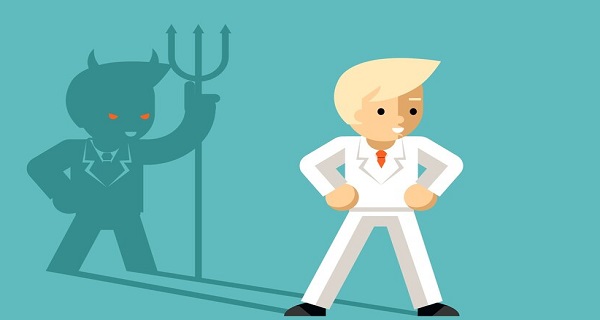The Danger of Control in Romantic Relationships: A Cautionary Tale
-
Table of Contents
- Introduction
- The Dangers of Controlling Behavior in Romantic Relationships: How to Recognize the Signs
- The Impact of Controlling Behavior on Mental Health in Romantic Relationships
- The Role of Communication in Avoiding Controlling Behavior in Romantic Relationships
- The Power Dynamics of Controlling Behavior in Romantic Relationships
- The Long-Term Effects of Controlling Behavior in Romantic Relationships
- Conclusion
“Don’t let control take the romance out of your relationship – learn the dangers before it’s too late!”
Introduction
The Danger of Control in Romantic Relationships: A Cautionary Tale is a cautionary tale about the dangers of control in romantic relationships. It is a story of how control can lead to unhealthy relationships, and how it can be avoided. This story is a warning to those who are in or considering entering into a controlling relationship. It is a reminder that relationships should be based on mutual respect and understanding, not on control. It is a reminder that relationships should be based on trust and communication, not on manipulation and power. This cautionary tale is a reminder that relationships should be based on love and support, not on fear and intimidation.
The Dangers of Controlling Behavior in Romantic Relationships: How to Recognize the Signs
When it comes to relationships, it’s important to remember that both partners should feel safe and respected. Unfortunately, some relationships can become unhealthy when one partner begins to control the other. Controlling behavior can take many forms, from subtle manipulation to outright abuse. It’s important to recognize the signs of controlling behavior so that you can take steps to protect yourself and your relationship.
One of the most common signs of controlling behavior is a lack of respect for your boundaries. If your partner is constantly pushing you to do things you don’t want to do, or if they try to control your decisions, this is a red flag. They may also try to isolate you from your friends and family, or make you feel guilty for spending time with them.
Another sign of controlling behavior is an excessive need for control. If your partner is constantly trying to control every aspect of your life, from what you wear to where you go, this is a sign that they are trying to control you. They may also try to control your emotions, telling you how you should feel or trying to make you feel guilty for feeling a certain way.
Finally, controlling behavior can also manifest itself in physical or verbal abuse. If your partner is physically or verbally abusive, this is a clear sign that they are trying to control you.
If you recognize any of these signs in your relationship, it’s important to take steps to protect yourself. Talk to a trusted friend or family member, or reach out to a professional for help. Remember, you deserve to be in a healthy, respectful relationship.
The Impact of Controlling Behavior on Mental Health in Romantic Relationships

Romantic relationships are meant to be a source of joy and comfort, but when one partner is controlling, it can have a devastating impact on the mental health of both people involved. Controlling behavior can range from subtle manipulation to outright abuse, and it can take a toll on your mental health in a variety of ways.
When you’re in a relationship with someone who is controlling, you may feel like you’re constantly walking on eggshells. You may be afraid to express your own opinions or make decisions without your partner’s approval. This can lead to feelings of anxiety, depression, and low self-esteem. You may also feel like you’re constantly being judged and criticized, which can lead to feelings of worthlessness and hopelessness.
Controlling behavior can also lead to a lack of trust in the relationship. You may feel like you can’t trust your partner to respect your boundaries or to be honest with you. This can lead to feelings of insecurity and fear, and it can make it difficult to open up and be vulnerable with your partner.
Finally, controlling behavior can lead to a sense of isolation. You may feel like you can’t talk to anyone about what’s going on in your relationship, or you may feel like you’re the only one who is struggling. This can lead to feelings of loneliness and despair.
If you’re in a relationship with someone who is controlling, it’s important to recognize the impact it’s having on your mental health. Talk to a trusted friend or family member, or seek professional help if you need it. It’s also important to set boundaries and stand up for yourself. You deserve to be in a healthy, supportive relationship.
The Role of Communication in Avoiding Controlling Behavior in Romantic Relationships
Communication is essential in any relationship, especially romantic ones. It is the key to understanding each other and avoiding controlling behavior. When we communicate openly and honestly, we can express our needs and feelings without fear of judgment or criticism. This helps us to build trust and respect in our relationships.
When we communicate, we can also set boundaries and expectations. This allows us to be clear about what we are comfortable with and what we are not. We can also discuss our individual needs and desires, and come to an agreement on how to meet them. This helps us to avoid controlling behavior, as we are both aware of what is acceptable and what is not.
Communication also helps us to resolve conflicts in a healthy way. We can talk through our issues and come to a mutual understanding. This helps us to avoid arguments and power struggles, which can lead to controlling behavior.
Finally, communication helps us to stay connected. We can share our thoughts and feelings, and be there for each other. This helps us to build a strong bond and trust in our relationship.
Communication is essential in avoiding controlling behavior in romantic relationships. It helps us to understand each other, set boundaries, resolve conflicts, and stay connected. When we communicate openly and honestly, we can create a healthy and loving relationship.
The Power Dynamics of Controlling Behavior in Romantic Relationships
Romantic relationships can be incredibly fulfilling and rewarding, but they can also be a source of power dynamics that can lead to controlling behavior. Controlling behavior is a form of manipulation that is used to gain power and control over another person. It can take many forms, such as verbal abuse, emotional manipulation, physical aggression, and financial control.
When one partner in a relationship is controlling, it can be difficult for the other partner to feel safe and secure. The controlling partner may try to control the other partner’s decisions, activities, and relationships with other people. They may also try to limit the other partner’s freedom and independence.
Controlling behavior can be damaging to a relationship, as it can lead to feelings of fear, guilt, and insecurity. It can also lead to a lack of trust and communication between partners. If left unchecked, controlling behavior can lead to physical and emotional abuse.
It’s important to recognize the signs of controlling behavior in a relationship and to take steps to address it. If you’re in a relationship with someone who is controlling, it’s important to set boundaries and to communicate your needs and feelings. It’s also important to seek help from a professional if the situation becomes too difficult to handle on your own.
No one deserves to be in a relationship where they feel controlled or manipulated. If you’re in a relationship where you feel like you’re not being respected or your needs are not being met, it’s important to reach out for help. Remember, you have the right to be in a healthy, safe, and respectful relationship.
The Long-Term Effects of Controlling Behavior in Romantic Relationships
When it comes to relationships, controlling behavior can have long-term effects that can be damaging to both partners. Controlling behavior can be defined as any attempt to manipulate or influence another person’s behavior or decisions. It can range from subtle attempts to influence decisions to more extreme forms of manipulation.
The long-term effects of controlling behavior in romantic relationships can be devastating. It can lead to feelings of insecurity, fear, and mistrust. It can also lead to a lack of communication and a breakdown in the relationship. Over time, this can lead to a lack of respect and a feeling of being trapped in the relationship.
Controlling behavior can also lead to a lack of autonomy and independence. When one partner is constantly trying to control the other, it can lead to a feeling of being powerless and unable to make decisions for oneself. This can lead to a feeling of being trapped and unable to make decisions for oneself.
Finally, controlling behavior can lead to a lack of intimacy in the relationship. When one partner is constantly trying to control the other, it can lead to a feeling of being disconnected and unable to truly connect with the other person. This can lead to a lack of emotional closeness and a feeling of being alone in the relationship.
Controlling behavior in romantic relationships can have long-term effects that can be damaging to both partners. It can lead to feelings of insecurity, fear, mistrust, and a lack of autonomy and independence. It can also lead to a lack of communication, a breakdown in the relationship, and a lack of intimacy. If you are in a relationship where you feel like you are being controlled, it is important to talk to your partner and seek help from a professional if needed.
Conclusion
The Danger of Control in Romantic Relationships: A Cautionary Tale serves as a reminder that relationships should be based on mutual respect and trust. When one partner attempts to control the other, it can lead to a toxic and unhealthy dynamic. It is important to recognize the signs of controlling behavior and to take steps to ensure that both partners are respected and valued. Ultimately, relationships should be based on love and understanding, not control and manipulation.
Related
Related Posts
-
 The Importance of Apologizing in Mending Broken Relationships
No Comments | Feb 25, 2023
The Importance of Apologizing in Mending Broken Relationships
No Comments | Feb 25, 2023 -
 The Importance of Transparency in Building Trust and Connection
No Comments | Feb 25, 2023
The Importance of Transparency in Building Trust and Connection
No Comments | Feb 25, 2023 -
 The Consequences of Deception: A Morality Story of Betrayal and Loss
No Comments | Feb 25, 2023
The Consequences of Deception: A Morality Story of Betrayal and Loss
No Comments | Feb 25, 2023 -
 She Tells Her Grandma That She’s Been Cheated On So Grandma Tells Her To Do This
No Comments | Sep 2, 2023
She Tells Her Grandma That She’s Been Cheated On So Grandma Tells Her To Do This
No Comments | Sep 2, 2023
